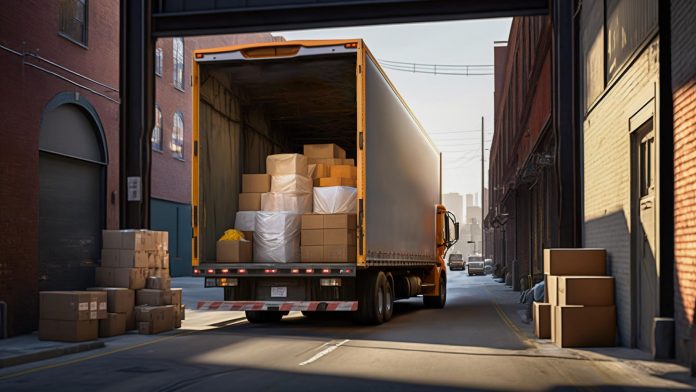Less-Than-Truckload: Meaning, Importance, Application, And More

The term less-than-truckload works when it deals with the transportation of small freight. In this case, the freight does not require an entire trailer. The method works when the freight weighs between 150 lbs. and 15,000 lbs. When a seller is shipping as per the less-than-truckload (LTL), the payment is only for the portion that the freight occupies in a standard trailer and not the rest of the space.
In this article, you will learn about the term less-than-truckload, and what are the major aspects of it. Apart from that, we will also discuss how the agreement works in shipping. Finally, you will learn about the major pros and cons of less-than-truckload. Hence, to learn more about the term, read on through to the end of the article.
What Is Less-Than-Truckload?
According to Investopedia,
“Less-than-truckload, also known as less-than-load (LTL), is a shipping service for relatively small loads or quantities of freight. Less-than-truckload services are offered by many large, national parcel services as well as by specialized logistics providers. These services can accommodate the shipping needs of countless businesses that need to move smaller batches of goods frequently.”
The shippers that use less-than-truckload offer economies of scale. They do this to minimize the freight costs of individual shipments.
The following are the major benefits of less-than-truckload:
- If you choose LTL shipment, you will only need to pay for the portion that you use. The leftover space is for other companies.
- There is higher security in LTL shipping since the shipments are packaged onto pallets before they are loaded onto the truck. Furthermore, it also helps in better handling of the product.
- By choosing LTL, you will also get special access to services like liftgates and other services.
- Most LTL shipments give you tracking capabilities through tracking numbers, reference numbers, etc.
What Are The Major Aspects Of Less-Than-Truckload?
To ship a truckload of replenished goods, a seller will not wait for the wholesaler to run low on its product inventory. Here, the seller will consider shipping more frequently with the less-than-truckload option. This is because the seller wants to mitigate the risk of potential loss of sales, which might arise due to a lack of inventory.
However, in some cases, the cost of shipping can be enormous. In other cases, the delivery time can be longer than usual, which is mostly the case with a whole truckload. Despite that, with LTL, you can ensure a better availability of dependable inventory for your customers.
On the other hand, companies that offer LTL services mostly provide specialized services to a particular audience. In some cases, these are businesses that work in urban areas or a particular region. However, in other cases, large transportation companies also offer LTL services, as they carry goods from one place to the other for their clients.
Here, Investopedia adds –
“Either way, the LTL provider combines the loads and shipping requirements of several different companies on their trucks—a process called assembly service—making it more cost-effective than hiring an entire truck for one small load. Less-than-truckload shipping requires a high degree of coordination and sophisticated logistics planning for maximum profitability.”
The rise of information technology helped a lot in LTL shipping. They are one of the major parts of LTL in the case of both sellers and customers.
What Are The Factors That Impact Less-Than-Truckload Prices?
On the other hand, the price of an LTL shipment depends upon three aspects:
On the other hand, the price of an LTL shipment depends upon three aspects:
1. Location Of The shipment: The cost increases as the distance of travel increases.
2. Measurable: The size, weight, and dimensions of the shipment also determine the price of the shipping.
3. Type of Item: The cost of the shipment will be higher if it requires special handling from the end of the shipping services.
How Does Less-Than-Truckload Work?
According to XPO.com,
“In general, LTL shipping is not limited by geography. There are some residential areas that restrict large trucks due to weight or height or safety concerns. And a few very remote areas may be too difficult for trucks to access. However, national carriers like XPO offer LTL coverage across the entire US, including Alaska, Hawaii, and Puerto Rico, as well as cross-border service to Canada and Mexico.”
As already discussed, the specifics of an LTL depend on a lot of factors. It depends on the place of origin, type of packaging, destination, weight of the package, size, and other handling charges. Furthermore, the capacity of the trucks is also a major factor in the shipment process.
However, there are many carriers that have their own rules and regulations. Apart from that, the rules and regulations of shipment also change with countries and international borders.
The job of an LTL provider is to combine the loads and shipment requirements of different companies on their trucks. These carriers use the hub-and-spoke model to get their goods to their destinations.
What Are The Pros And Cons Of Less-Than-Truckload?
The following are the major pros and cons of Less-Than-Truckload that you need to know:
Pros
Here are some of the biggest pros of Less-Than-Truckload that you will benefit from:
- LTL is one of the most cost-effective options for businesses that work with smaller loads and don’t require an entire truck.
- You will get enough flexibility with LTL shipments of various shapes and sizes. This will be helpful for you if your business deals with fluctuating shapes and volumes.
- This is an environmentally friendly option and helps in reducing your carbon footprint.
- You will have access to extensive transportation networks.
Cons
Here are a few cons of Less-Than-Truckload that you must be aware of:
- The transit time is more than usual in the case of LTL.
- Since the carrier includes goods from various companies, there is an increased risk of damage.
- You will have less control over the handling of the items and the scheduling of the shipment.
Wrapping Up
If you do not deal with a lot of shipments or shipments of higher quantities, you must choose the Less-Than-Truckload option. However, before you choose your shipment option, consider going through the pros and cons of the same.What is your opinion of LTL shipments? Consider sharing your ideas and views with us in the comments section below.
For More Business News Click Below!!













